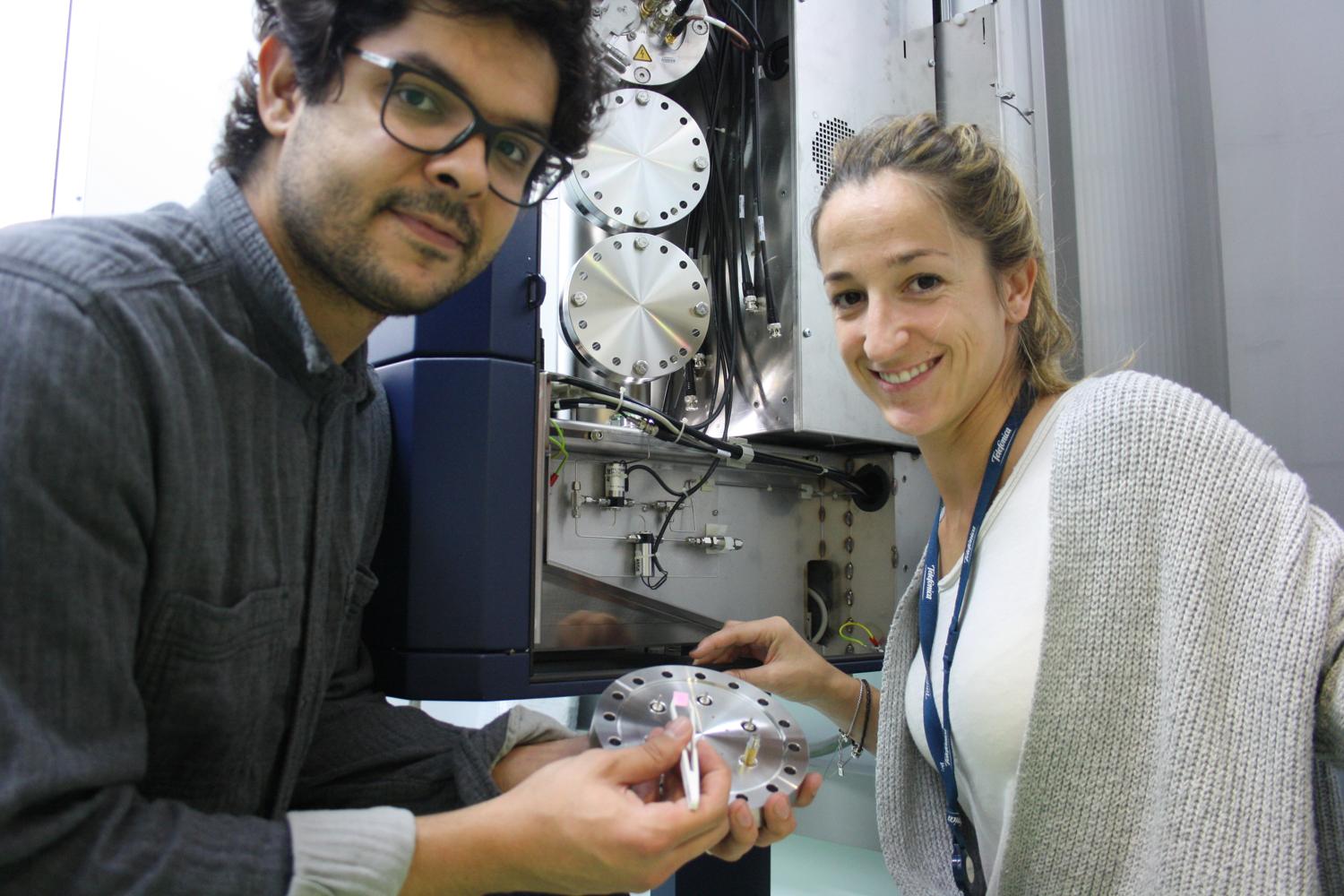nanoGUNE launches its fifth spin-off
Prospero Biosciences will be developing an innovative technology capable of opening up a new field of applications within the mass spectrometry industry. It will enable significant advances to be made in research into biological markers, among other things.
Together with other promoters, the CIC nanoGUNE Nanoscience Research Center has set up its fifth spin-off company: Prospero Biosciences SL (Prospero). Prospero seeks to make use of the advantages offered by nanotechnology to develop an innovative molecule detector that will be built into mass spectrometers; these are measuring instruments that allow, among other things, the different chemical elements that make up a compound to be analyzed with great precision, and they constitute one of the analytical instrumentation industries that has seen major growth worldwide.
This new business project is the outcome of collaboration between nanoGUNE researchers and Robert Blick (professor at the University of Hamburg and visiting nanoGUNE professor), a world expert in the field of nanotechnology applied to the biotechnological sector. His discoveries, protected by various patents, will make possible something that has been impossible until now: the straightforward and extraordinarily accurate detection of intact high-mass molecules. What Prospero is setting out to do is to develop the technology protected by these patents in order to market new detectors all over the world.

The promoters of this new business initiative include, in addition to nanoGUNE, Prof. Blick himself, nanoGUNE researchers Maria Arbulu and Thales de Oliveira, and the company HASTEN Ventures, devoted to business project acceleration and promotion. The new spin-off has been set up in the nanoGUNE business incubator and makes use of the center’s labs and facilities.
Biomedical applications
Prospero is currently in the process of developing and producing an innovative nano-membrane on an industrial scale; this membrane represents the basis of the technology which is enabling a tremendous improvement to be made with respect to other solutions existing on the market.
To be able to use this technology, the first step is to integrate it into a mass spectrometer that allows the different chemical elements forming a compound to be analyzed. So the mass spectrometer can identify molecules, and, in particular, it can identify biomarkers of different diseases even before the patient experiments any symptoms. This technique puts scientists in a better position to discover cures for a range of diseases, to cut response time to viral and bacterial outbreaks to a minimum, to improve clinical diagnoses, to optimize drug safety, and to provide greater personalized health care.
However, despite the advances made in recent years, the industry has not until now been capable of developing a technology that can reliably identify high-mass molecules. And that is precisely what Prospero is offering. The technology that nanoGUNE’s fifth spin-off is intending to develop will open up the doors to a broad field of applications, such as research into biological markers, medical research and diagnosis, or the development of biosimilar drugs that require the accurate identification of high-mass molecules.
Prospero is developing various high-mass molecule detector prototypes, which are being successfully tested by various end users in the health science sector. Jose María Pitarke, nanoGUNE’s Director General, has expressed his satisfaction following the setting up of the company and has stressed that "Prospero is a disruptive company with a strong scientific and technological base, and we hope it will represent a true milestone in the field of nanobiotechnology".
